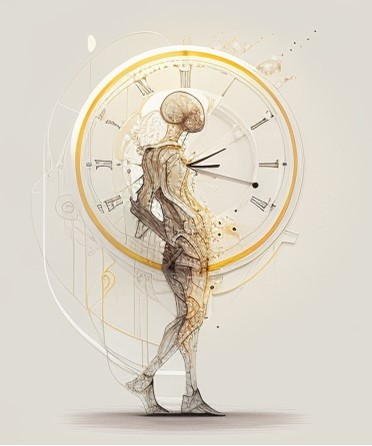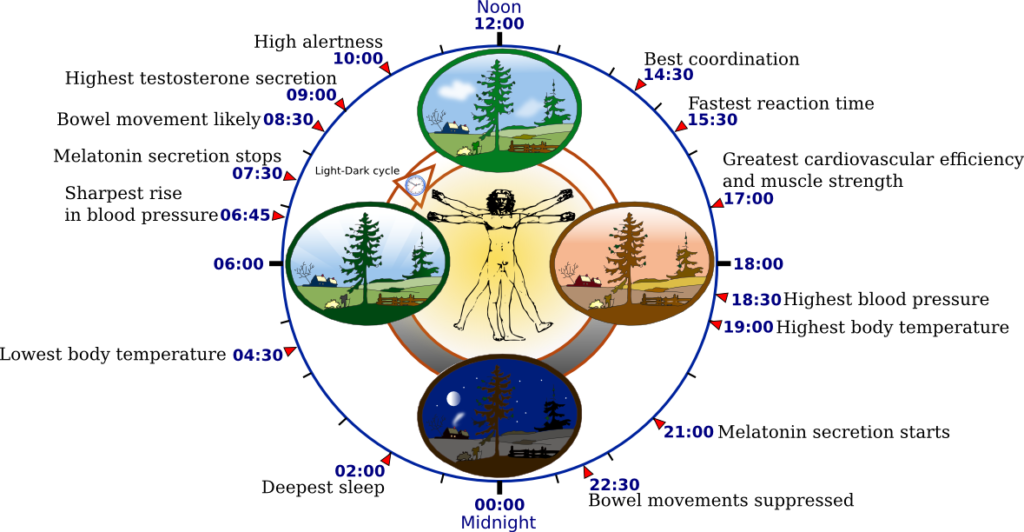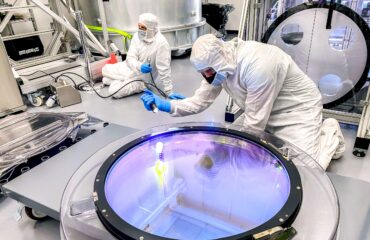By Mariana Meneses
Ageing is a natural process that affects all living organisms, from humans to animals and plants.
As we age, our bodies go through many changes that affect our physical and mental abilities, making it challenging to carry out everyday tasks. For years, scientists have been searching for ways to reverse the ageing process, and recent research provides exciting insights into the mechanisms behind ageing and how they can be manipulated. Could we be on the verge of unlocking the secrets of age reversal?

Art generated for this article using Midjourney AI.
Although our cells are programmed to divide and renew, this process slows down as we grow older, leading to cellular damage, failure of some body parts, and age-related diseases. However, recent research has shown that it may be possible to reverse some effects of time on the body.
A team of scientists at the University of California, San Francisco, led by Dr. Jae-Hyun Yang, has discovered a way to rejuvenate old cells by resetting them to a younger state. The team used a combination of chemicals to reprogram cells from older mice, effectively making them look and act like younger cells, which the researchers called ‘rebooting’.
The researchers utilized a revolutionary gene-editing technique called CRISPR-Cas9 to modify the genetic makeup of mice.
(You can read more about this technique in another TQR article). CRISPR-Cas9 enables precise alterations in DNA sequences, and in the research process, the scientists focused on removing a specific gene known as SIRT6 from the genomes of the mice. SIRT6 is a gene that has been implicated in the processes of ageing and metabolism.
After deleting the SIRT6 gene from the mice genomes, the researchers observed a range of notable changes. These included an extended lifespan, a reduction in age-related diseases, and an improvement in metabolic functioning.
To identify the SIRT6 gene, the researchers utilized their understanding of the human genome, which is the complete DNA sequence of a human being encompassing all the essential genes for sustaining life. By comparing the genomes of mice and humans, the researchers successfully pinpointed the SIRT6 gene.
The ageing process is complex, involving genetic, environmental, and lifestyle factors.
The discovery by the team at UCSF is significant because it demonstrates that the ageing process can be reversed at the cellular level. By resetting cells to a younger state, the researchers were able to restore their functionality and reduce the symptoms of ageing. This impressive finding could lead to the development of new treatments for diseases such as Alzheimer’s and Parkinson’s.
Dr. David Sinclair, a professor of genetics at Harvard who co-authored the study, explains that, “We think of the processes behind ageing, and diseases related to ageing, as irreversible. In the case of the eye, there is the misconception that you need to regrow new nerves. But, in some cases, the existing cells are just not functioning, so if you reboot them, they are fine. It’s a new way to think about medicine.”
However, it’s important to note that this research is still in its early stages, and much work needs to be done before we can start talking about reversing the ageing process in humans. While the study showed promising results in mice, it’s not clear whether the same approach would work in humans. There are also safety concerns, as resetting cells to a younger state could potentially increase the risk of cancer.
Despite the excitement generated by the discovery of these new treatments, it is important to keep in mind that there are limitations to what these therapies can achieve.
Age-related diseases are complex, and there is no magic pill or treatment that can reverse aging entirely. However, these advances do represent a promising step forward, and researchers are optimistic about the possibilities for future research.

The biological clock controls body processes, and circadian rhythms are influenced by light-dark cycles and factors like temperature, meal times, stress, exercise, and napping. Image: Yassine Mrabet.
One of the key challenges in ageing research is understanding the molecular mechanisms that underlie the ageing process.
There is still much we don’t know about how our cells age and why certain cells are more susceptible to ageing than others. Recent research has focused on understanding the role of telomeres, the protective caps on the ends of our chromosomes that shorten as we age, as well as the accumulation of senescent cells, which are cells that have stopped dividing and can contribute to inflammation and tissue damage.
Another promising avenue of research is the development of personalized medicine, which takes into account an individual’s genetic and environmental factors when designing a treatment plan. By tailoring therapies to each individual’s unique needs, we may be able to slow or even reverse the ageing process in a more targeted and effective way.
Several companies with deep financial backing are investing in anti-ageing research, with the global anti-ageing market projected to reach $271 billion by 2024.
The development of age reversal therapies could revolutionize healthcare and extend the healthy lifespan of individuals, allowing them to live longer and healthier lives.
However, as with any new medical technology, there will be risks and ethical concerns. Ageing is a natural process that is integral to life, and manipulating the ageing process could lead to unintended consequences, including new forms of inequality.
While there is still much we don’t know about the ageing process, these discoveries represent a significant step forward in our understanding of the molecular mechanisms underlying age-related diseases. As Dr. Sinclair explains about his Information Theory of Aging, “Underlying ageing is information that is lost in cells, not just the accumulation of damage.” In doing so, he makes explicit the connection between information, time, and life.
Want to expand your horizons? Explore these handpicked TQR articles:
- Mind Reading Technology Connects Brains to Machines
- Space Exploration Technology Opens A Window On Time
- CRISPR Technology: Editing the Genetic Code, From Plants to Humans
- Time Cells: How Our Brains Record the Passing of Time
- From What Is Real, to What Is Possible: The Discovery and Creation of Time Crystals




Terrific article. I especially enjoyed the biological clock. I see to be “on time”